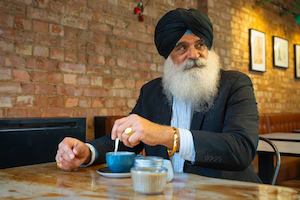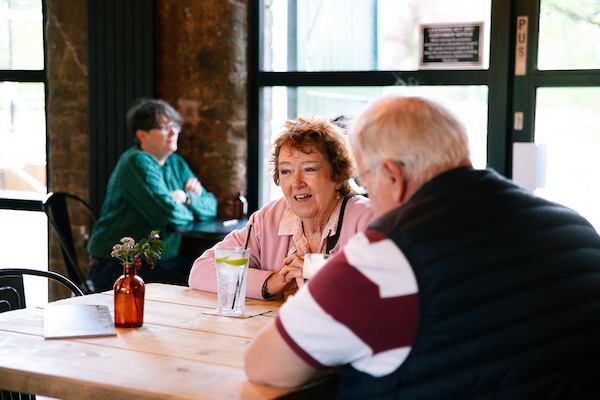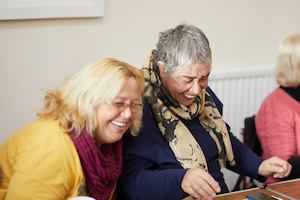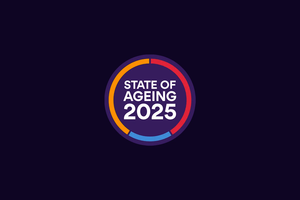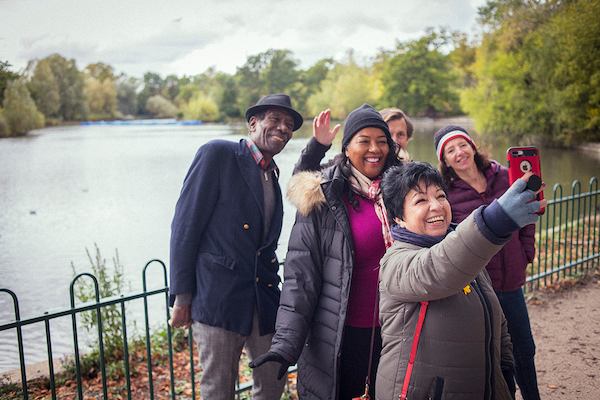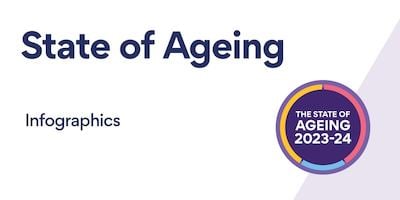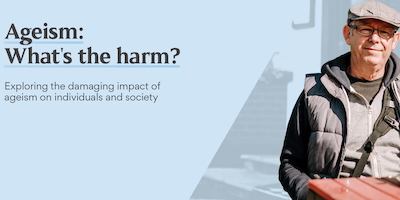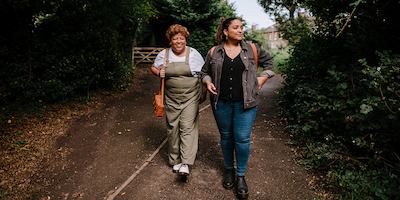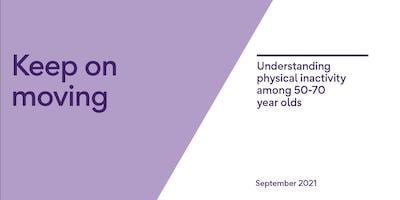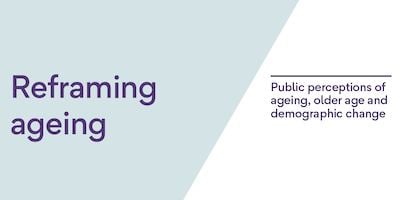110 million lost hours of volunteering by older people due to post-pandemic slump
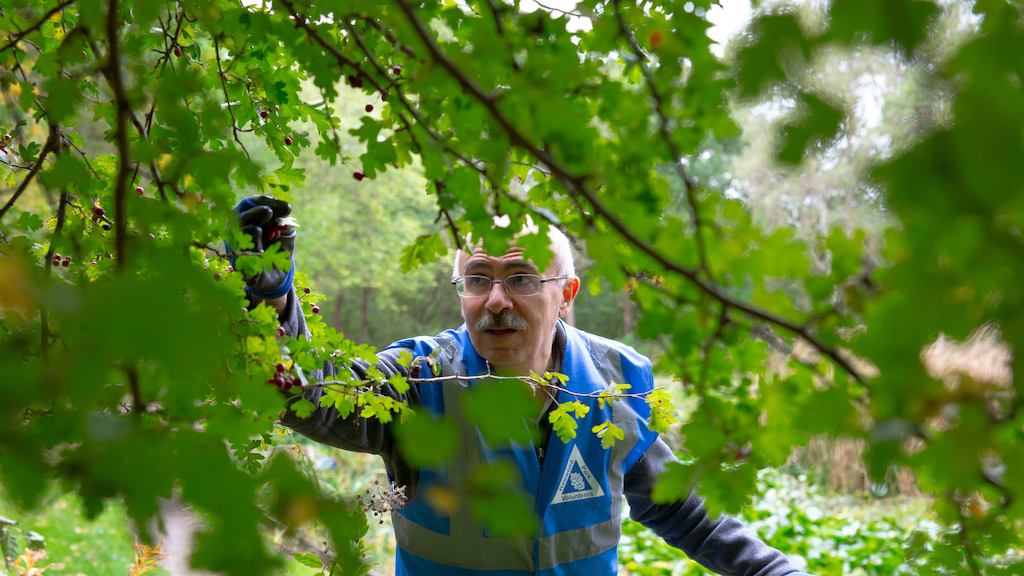
Our latest State of Ageing chapter on Society reveals that the huge amount of volunteering carried out by people aged 50 and older has diminished compared to before the pandemic.
The Centre for Ageing Better is calling for action to be taken to remove barriers that will enable more older people to volunteer.
A post-pandemic slump in volunteering has seen in excess of one million older people stopping volunteering regularly in England, our new analysis reveals.
While age groups above 50 still have among the highest rates of volunteering, levels of volunteering among these age groups have not recovered since the end of the pandemic, the latest chapter from our State of Ageing 2025 report reveals.
The post-pandemic slump has led to 1.16 million fewer people aged 50 and over doing formal volunteering, which includes giving unpaid help through groups, clubs and organisations, at least once a month in 2024 compared with 2019.
There are 632,000 fewer people 50 and over doing informal volunteering, which includes helping people who are not relatives such as shopping for a neighbour, at least once a month.
This slump equates to more than 110 million lost formal volunteering hours per year since the pandemic and the resultant lost economic value per year could be as high as £4 billion.
While COVID restrictions directly stopped some older people from volunteering, health problems or old age are more common reasons cited by older people as well as not having enough time due to changing home or work circumstances – indicating that the cost-of-living crisis has potentially had a big impact on volunteering rates.
Dr Carole Easton OBE, Chief Executive at the Centre for Ageing Better, said:
The scale of the post-pandemic slump in older people volunteering is hugely concerning and should serve as a wake-up call. The country is missing out on a huge thrust of people power, to the significant detriment of those who want to volunteer but currently don’t, and the countless communities and individuals who stand to benefit from volunteer work.
“The data shows that only one in eight older people, who stopped volunteering in the last five years, cited Covid restrictions as the reason. Twice this number said they stopped because of lacking time due to changing home or work circumstances. This could indicate how the cost-of-living crisis has potentially continued to restrict volunteering by creating time pressures for people in their 50s and 60s.
“Older people in England play a vital, and often underappreciated, role in society, including through volunteering, caring and civic participation. But it is clear that there are significant barriers, including ageism and inequality, digital exclusion and cutbacks, that are severely curtailing older people’s ability to contribute.
“We need every local authority in the country to become an Age-friendly Community in order to ensure that the planning and design of our communities help people to age well and contribute for as long as possible.
The newly-published Society chapter of the State of Ageing 2025 report reveals that people aged 65 to 74 are still the age group most likely to volunteer. But the rate of regular formal volunteering among this age group fell from 31% pre-pandemic to 22% in 2020/21, and recovered by only one percentage point since.
Before the pandemic, 23% of people aged 50 to 64 volunteered formally at least once a month. This has now fallen to 16%.
Among people aged 75 and over, 21% volunteer formally at least once a month compared with 25% in 2019/20.
In 2023/24, rates of regular informal volunteering fell to their lowest for at least eight years.
While there was an initial spike in regular informal volunteering during the pandemic for most older age groups, rates have continued to fall since, for the population as a whole and for all age groups aged 50 and over.
As part of the research for the State of Ageing 2025 report, we with community groups in Knowsley and Middlesborough to understand their experiences of ageing.
A woman in her sixties from Knowsley, who did not wish to be named, articulated the benefits of the volunteering work she carried out:
[Organising social events in the extra care scheme] takes my mind off things that are going on in my own life... I need that break. I know that sounds awful, but when you're looking after someone who’s seriously ill, it's hard work, and I needed to be myself again.
Aideen Young, Senior Evidence Manager for Research, Impact and Voice at the Centre for Ageing Better, said:
Our analysis of the State of Ageing shows clearly the impact that inequalities play in reducing an older person’s prospects of volunteering. Poor health, accumulated over a life of inequality, is a much greater barrier to civic participation in the country’s poorest areas than it is in the most prosperous.
“Volunteering can deliver meaningful and impactful benefits to individual recipients and to their communities. But it also provides improved wellbeing and sense of purpose for those who volunteer. And that is why we need any barriers to volunteering removed.
“Organisations that offer volunteering opportunities have a role to play in tackling the barriers that might be stopping older people from volunteering. Organisations should be taking time to listen to their volunteers to understand what the barriers are, understand how the framing of volunteering opportunities might be encouraging or discouraging involvement, support volunteers to have a greater role in shaping how they volunteer, being flexible with the opportunities to participate and engage with groups who currently don’t volunteer to understand what might help them to.”
The State of Ageing 2025 report also found that:
- White people aged 50 and over in the country’s least deprived areas (24%) are twice as likely to carry out formal volunteering on a regular basis compared to those living in the most deprived areas (11%).
- In contrast, for older people from minoritised ethnic backgrounds, there is little difference in formal volunteering rates between those living in the most deprived areas of the country (15%) and those living in the least deprived areas (18%).
- People aged 50 and over living in rural areas (24%) are more likely to volunteer formally at least once a month than people in urban areas (18%), but rates of informal volunteering are very similar (27% in rural vs 26% in urban).
- Non-disabled people aged 50 and over (21%) are more likely to volunteer formally at least monthly than Disabled people (17%) but rates of informal volunteering are very similar (26% for non-disabled people vs 27% for Disabled people).
- People aged 50 to 64 living in the most deprived areas are more likely than people in the least deprived areas to say they volunteer because the cause is important to them (36% vs 32%), because it’s part of their philosophy (27% vs 22%) or because it’s part of their religious belief (17% vs 9%).
- People aged 50 to 64 living in the least deprived areas are more likely than those in the most deprived areas to say they volunteer because they have spare time (34% vs 27%), because it gives them a chance to use existing skills (24% vs 19%) and because the volunteering was connected with the needs of family or friends (21% vs 16%).
- Among people aged 50 to 64, those living in the least deprived areas are more likely than those in the most deprived areas to give work commitments (61% vs 49%) and having other things to do with their time (39% vs 25%) as reasons why they don’t volunteer regularly.
- People living in the most deprived areas are more likely than those in the least deprived areas to say they have an illness or disability that prevents them from volunteering at least once a month – this is the case for both people aged 50 to 64 (24% vs 6%) and people aged 65 and over (34% vs 18%).
